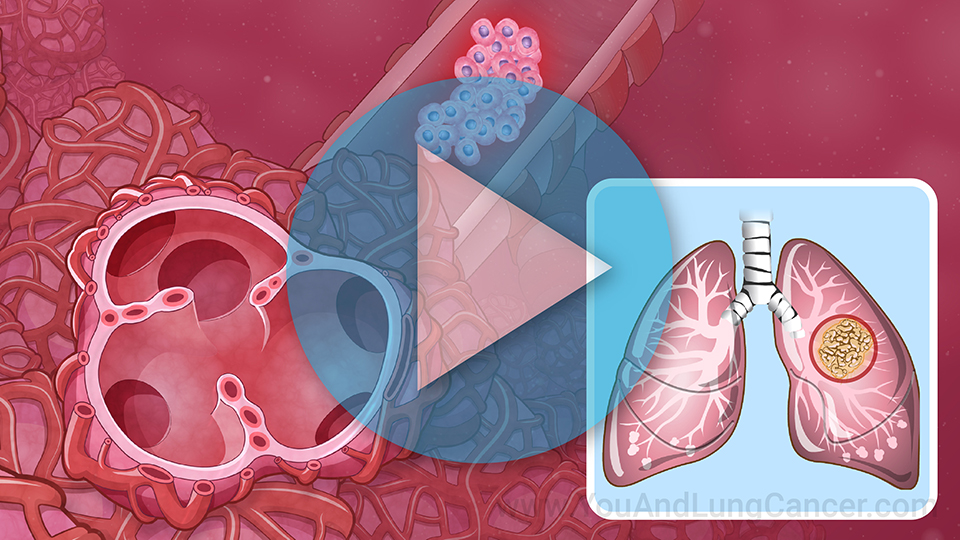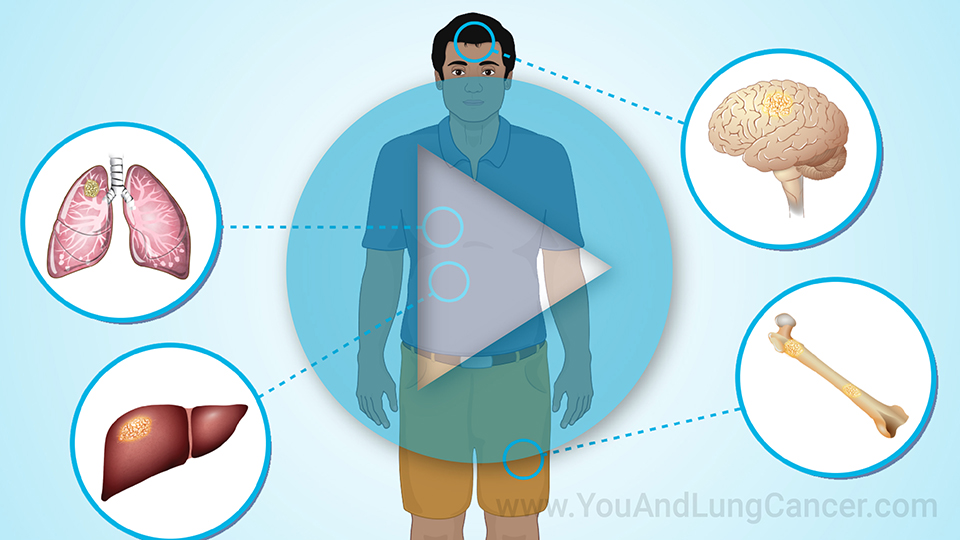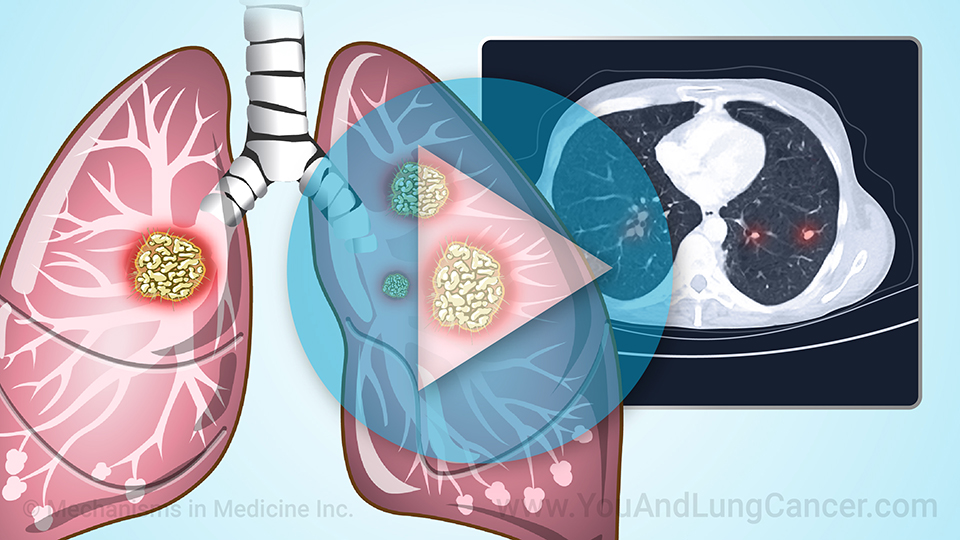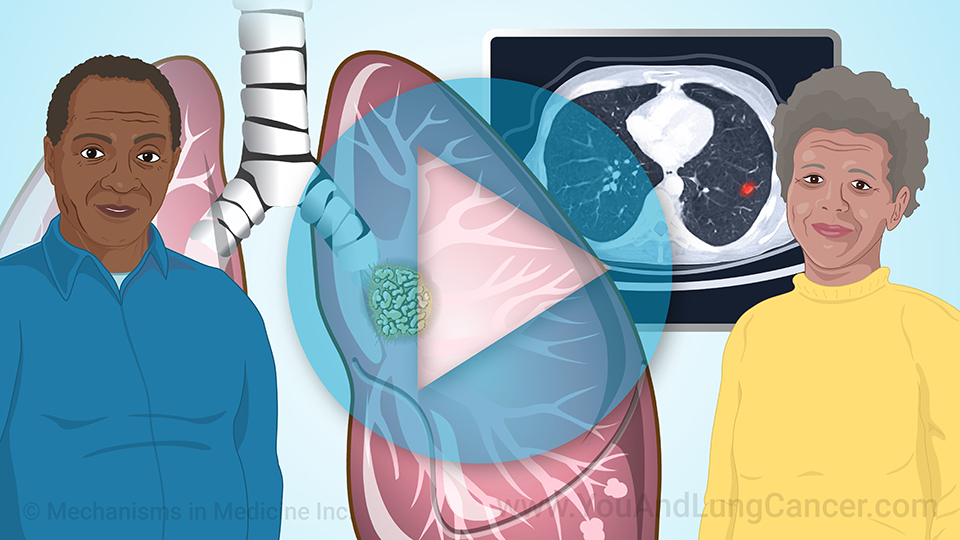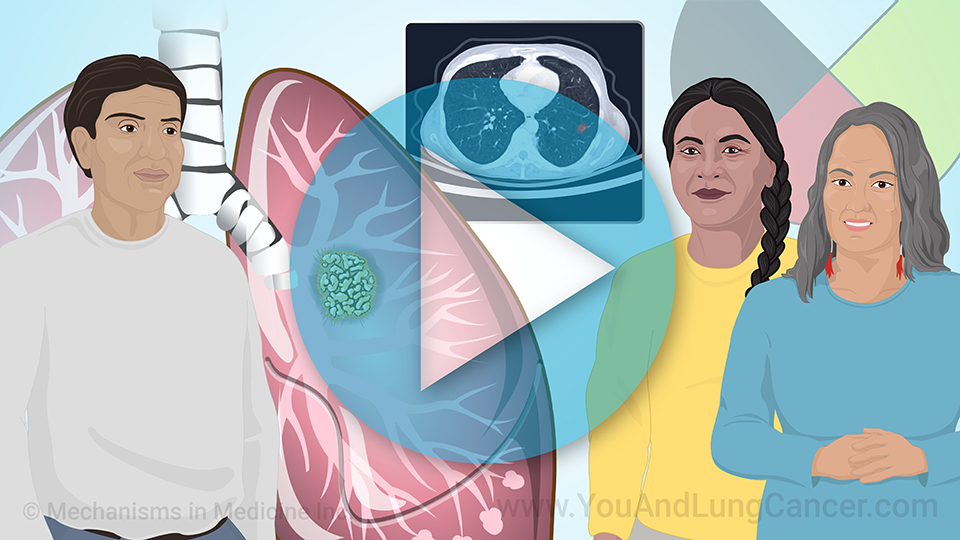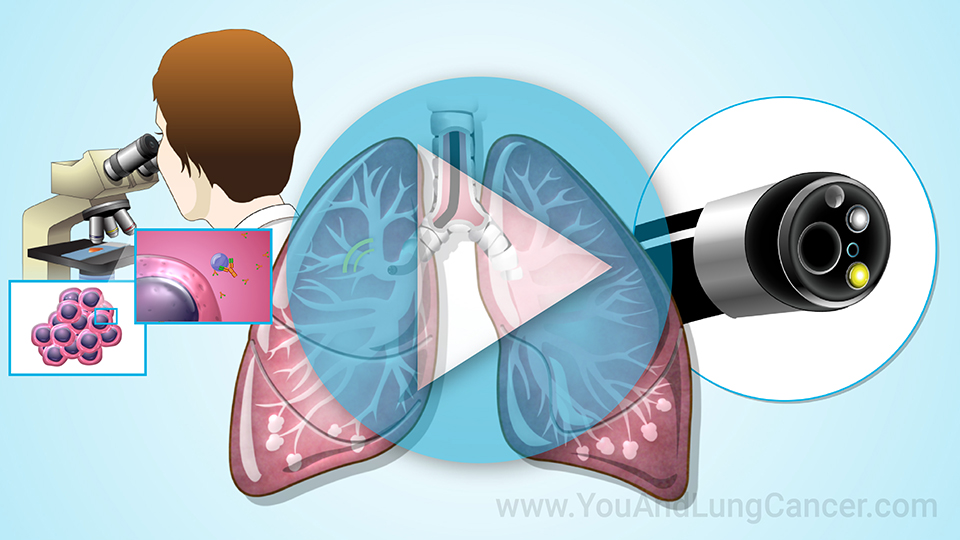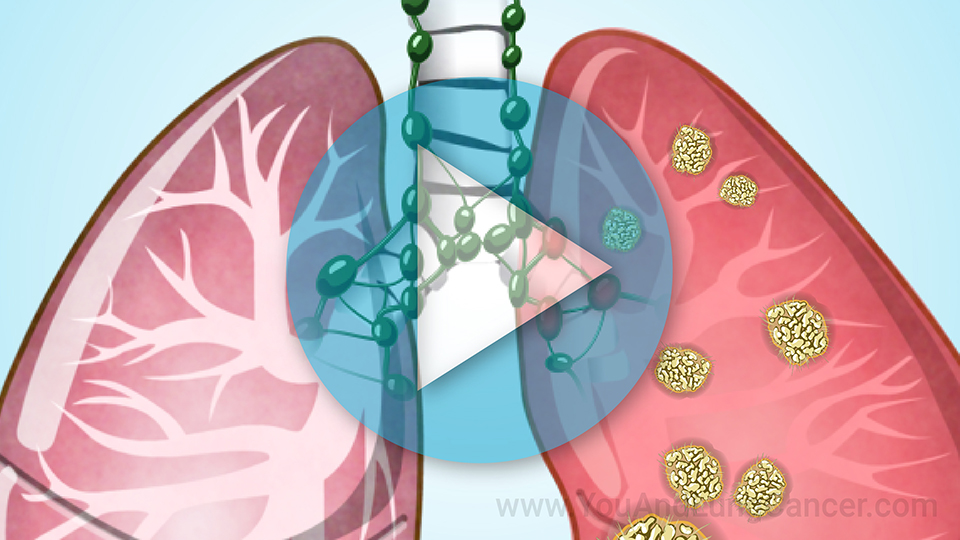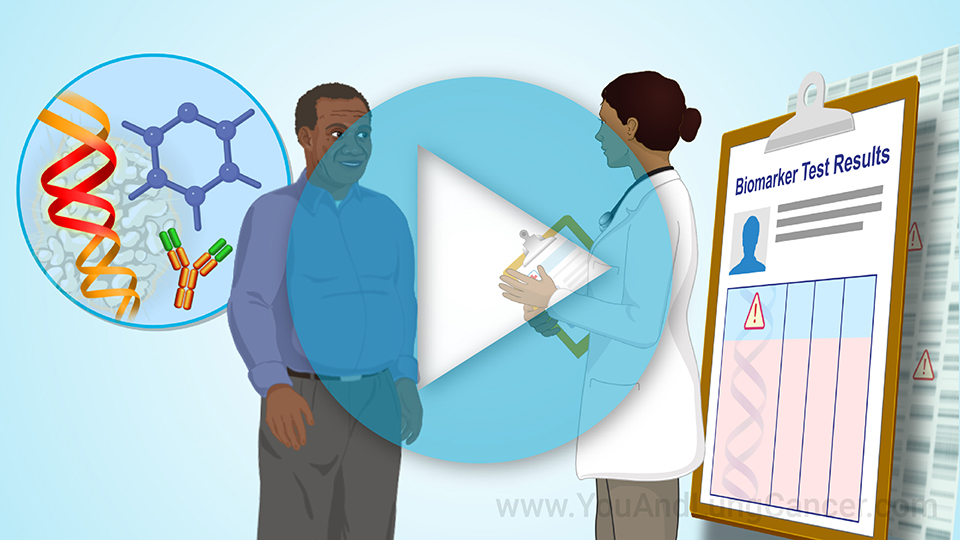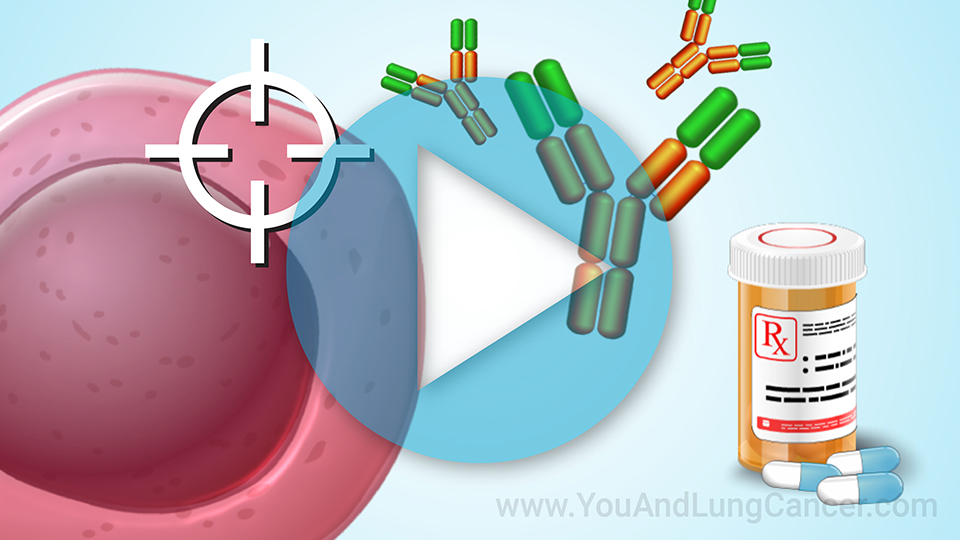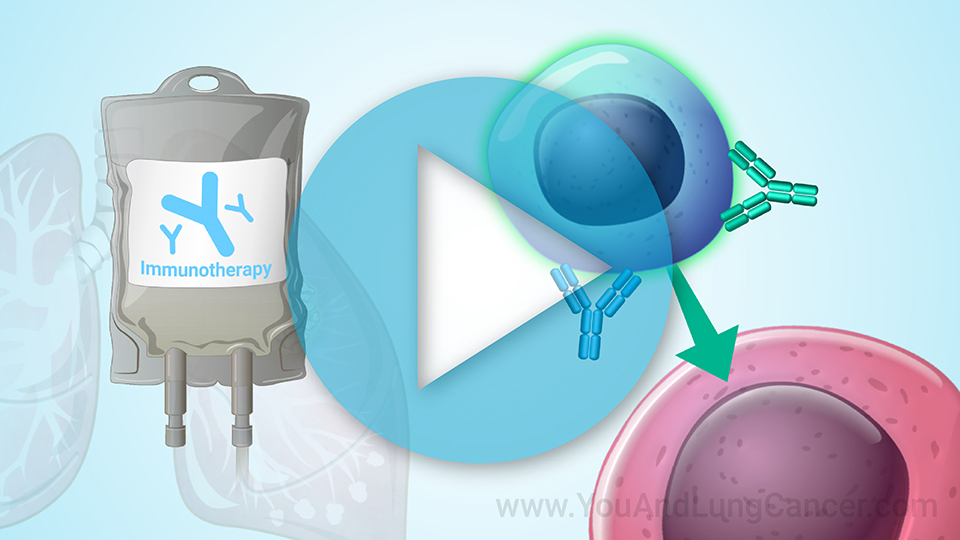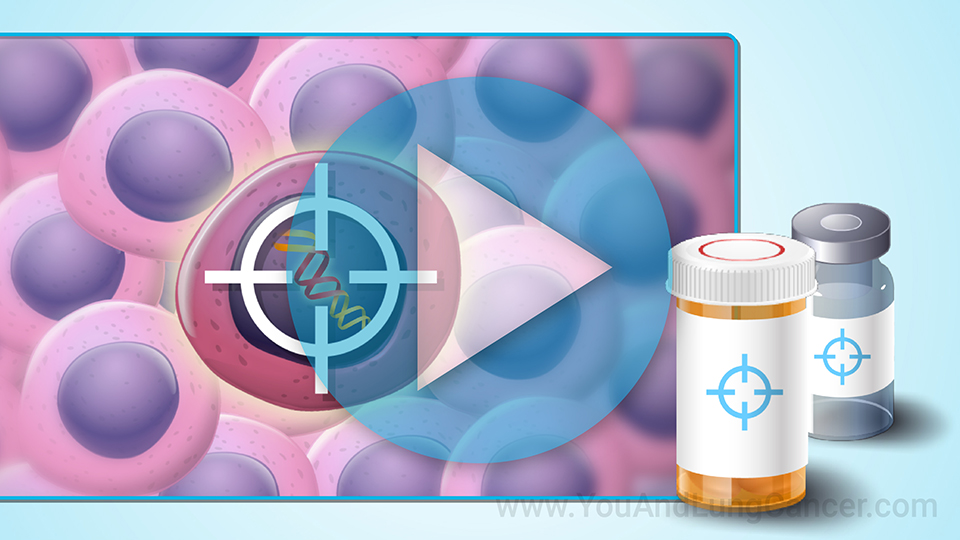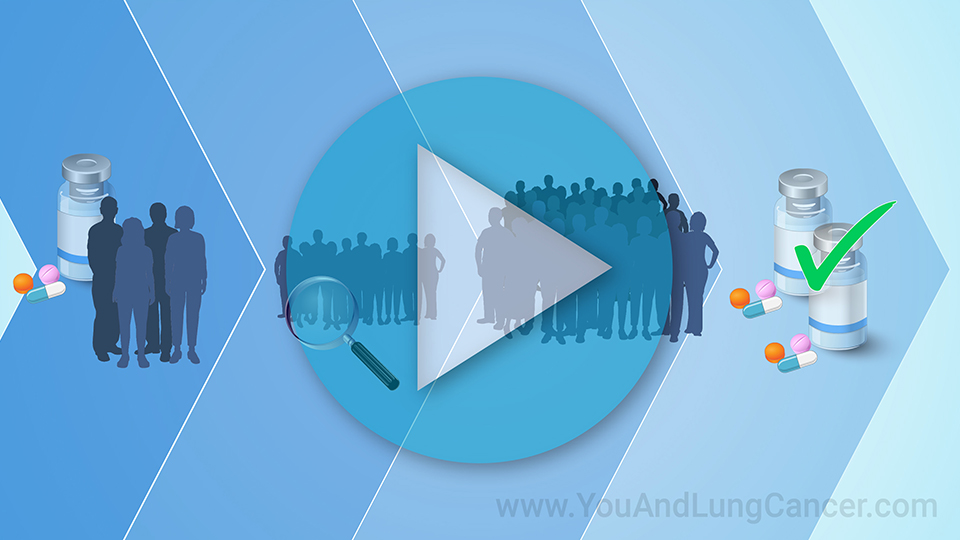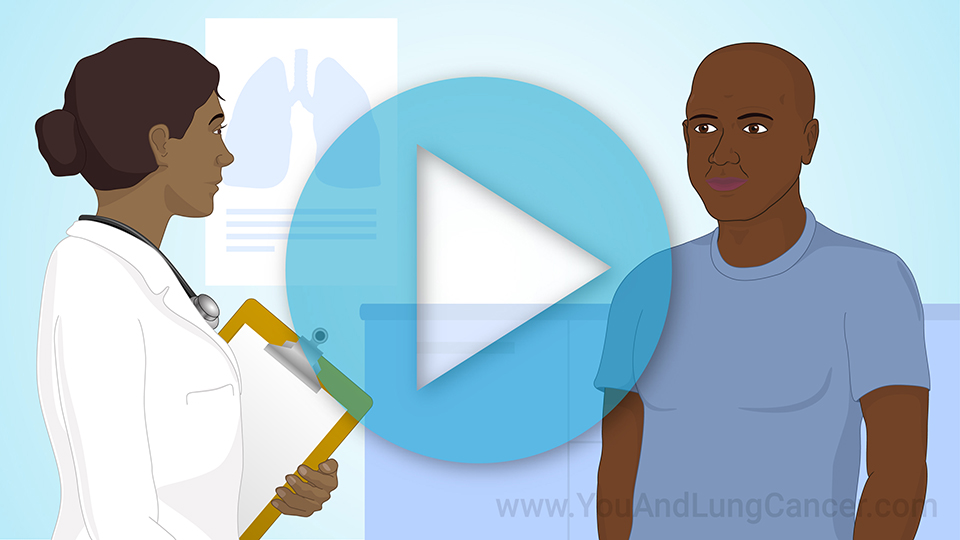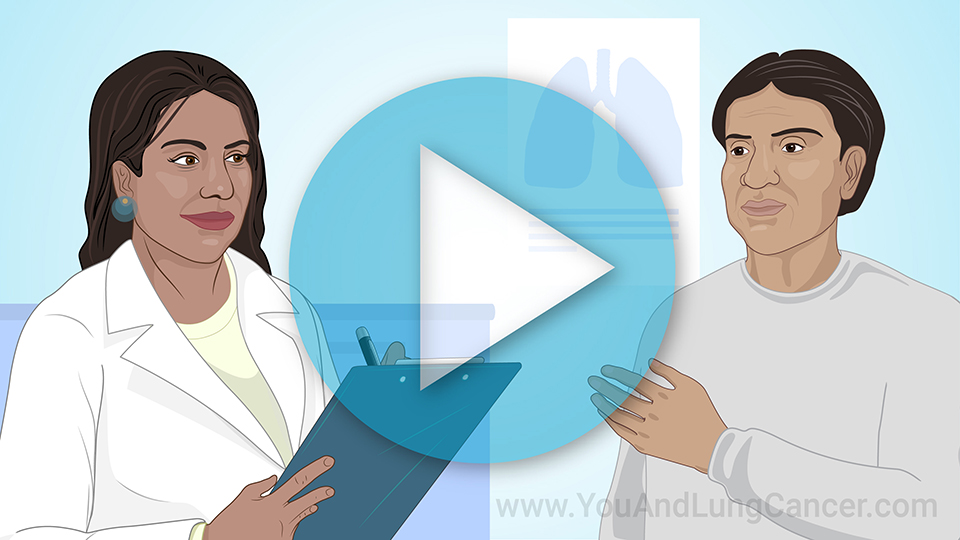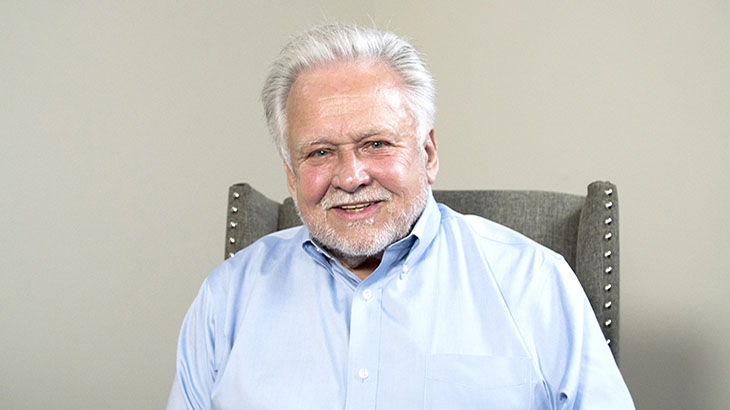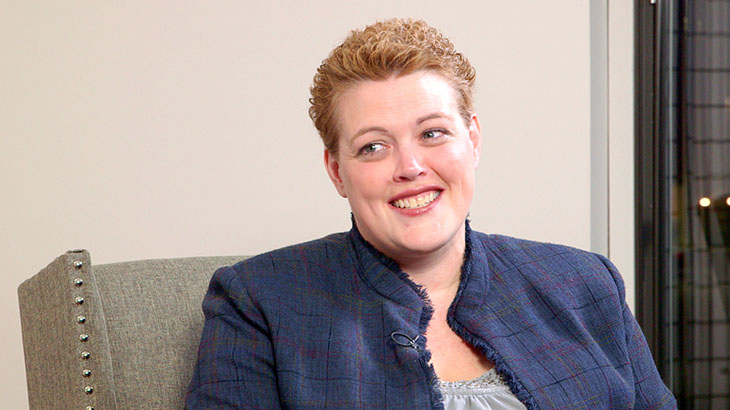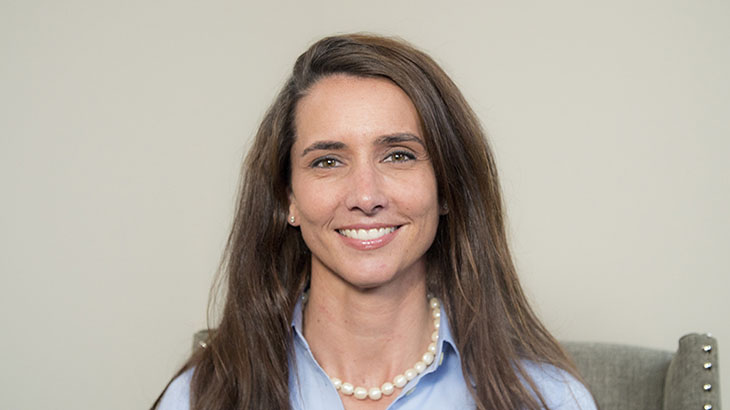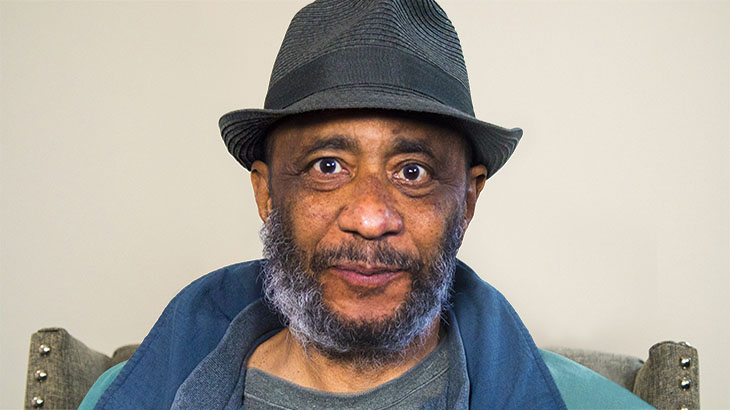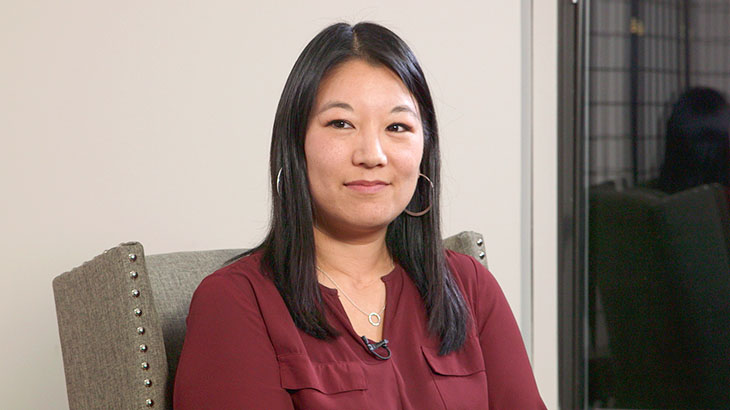Understanding NSCLC Treatments for Less Common Mutations: ALK, BRAF, ROS1, HER2, MET
*Please note: This slide show is not intended to be a substitute for professional medical advice, diagnosis, or treatment. Always consult your doctor about any questions you may have regarding a medical condition.
What are less common mutations found in NSCLC?
A mutation is a change in a gene that contains the instructions telling your body how to function. People with non-small cell lung cancer, or NSCLC, often have one or more gene mutations.
What are less common mutations found in NSCLC?
Some mutations, like KRAS or EGFR, are relatively common. Less common mutations may also affect people with NSCLC. In the United States, several thousand people are found to have these "less common" mutations each year.
No matter how common or uncommon your mutation is, it is important to know if a mutation is present. Knowing this helps determine the best treatment.
The ALK mutation in NSCLC
The ALK mutation is present in about 5 percent of people with NSCLC.
The ALK mutation in NSCLC
The ALK mutation is more likely to be found in younger people, usually with adenocarcinoma. It tends to occur in non-smokers and light smokers.1
Treating NSCLC with an ALK mutation
Drugs called tyrosine kinase inhibitors (TKIs) are used if you have an ALK mutation. TKIs work by blocking proteins and preventing cancer cells from growing. They include:
- Crizotinib (Xalkori®)
- Ceritinib (Zykadia®)
- Alectinib (Alecensa®)
- Brigatinib (Alunbrig®)
- Lorlatinib (Lorbrena®)
All of these are taken as pills.2
The BRAF mutation in NSCLC
The BRAF mutation affects 3 to 4 percent of people with NSCLC, most often women and people who used to smoke or currently do.1
The BRAF mutation in NSCLC
A mutation in the BRAF gene can lead to uncontrolled cell growth and cancer.
There are two versions of the BRAF mutation, V600E and non-V600E.3
Treating NSCLC with a BRAF mutation
Drugs that target the BRAF mutation include dabrafenib (Tafinlar®), trametinib (Mekinist®), encorafenib (Braftovi®) and binimetinib (Mektovi®).4
Dabrafenib is a type of drug called a BRAF inhibitor. It directly attacks the mutated BRAF protein. Another protein, called MEK, is related. The drug trametinib attacks the MEK protein. The combination of encorafenib and binimetinib also blocks these proteins.
Treating NSCLC with a BRAF mutation
If you have NSCLC with a BRAF V600E mutation and the cancer has spread, you may take two of these drugs together. Immunotherapy can also be a good choice for people with BRAF non-V600E mutations.
The ROS1 mutation in NSCLC
A mutation in a gene called ROS1 affects just 1 or 2 percent of people with NSCLC.1
The ROS1 gene sometimes fuses with another gene, activating the ROS1 gene in a way that causes uncontrolled cell growth and cancer. This mutation is more common in women, non-smokers, and younger people, usually with adenocarcinoma.
Treating NSCLC with a ROS1 mutation
People with the ROS1 mutation do not have the EGFR, KRAS, or ALK mutation.4 Drugs that target the ROS1 mutation include:
- Crizotinib (Xalkori®)
- Entrectinib (Rozlytrek®)
- Ceritinib (Zykadia®)
- Repotrectinib (Augtyro™)
Treating NSCLC with a ROS1 mutation
These may be used instead of chemotherapy, when chemo no longer works, or if cancer has spread.
Treating NSCLC with a HER2 mutation
Two percent of people with NSCLC have mutations in a gene called HER2.4
Treating NSCLC with a HER2 mutation
A drug called trastuzumab deruxtecan (Enhertu®) is approved to treat lung cancer with HER2 mutation. Unlike some of the other targeted therapies, it is not a tyrosine kinase inhibitor but a designer antibody. This is an antibody with a toxin attached to kill the targeted cancer cell. This drug is also used to treat breast cancer that has the HER2 protein.
It is given as an IV treatment if you have already tried at least one other drug, for cancer that cannot be treated with surgery or has already spread.4
Treating NSCLC with a MET mutation
One to two percent of people with NSCLC have mutations in a gene called MET.4
Treating NSCLC with a MET mutation
Capmatinib (Tabrecta®), tepotinib (Tepmetko®), and crizotinib (Xalkori®) can slow the spread of NSCLC with this mutation if the MET mutations are a certain type. These are taken as pills.4
Side effects of treatments for less common mutations in NSCLC
Like every treatment, those for less common mutations in NSCLC have side effects. These range from digestive symptoms such as nausea or diarrhea to more serious side effects such as heart and liver problems.4
Talk with your doctor about the benefits of taking one of these drugs compared with the chance of side effects. Your doctor can help you decide on your treatment goals.
Clinical trials for people with less common mutations in NSCLC
Researchers have many questions about treating NSCLC in people with less common mutations, including which treatments are most helpful, when to use them, how to reduce side effects, and more.
Finding a clinical trial if you have one of the less common mutations
Clinical trials are an important way to learn if new treatments are effective. If you have NSCLC with a less common mutation, ask your doctor about clinical trials. This is especially important for rare mutations, as there are fewer people available to take part. A trial could improve your outlook and will help future patients and researchers.
References
- Watson S, Williams A. Guide to lung cancer mutations. Healthline.com. Last revised: September 30, 2022.
https://www.healthline.com/health/nsclc/guide-to-lung-cancer-mutations#types-of-mutations
- Rees M. Anaplastic lymphoma kinase (ALK) non-small cell lung cancer. Medical News Today. Last revised: June 8, 2021.
https://www.medicalnewstoday.com/articles/alk-non-small-cell-lung-cancer#outlook
- Alvarez JGB, Otterson GA. Agents to treat BRAF-mutant lung cancer. Drugs Context. 2019 Mar 13;8:212566.
- American Cancer Society. Targeted drug therapy for non-small cell lung cancer. Last revised: December 13, 2022.
https://www.cancer.org/cancer/types/lung-cancer/treating-non-small-cell/targeted-therapies.html



































